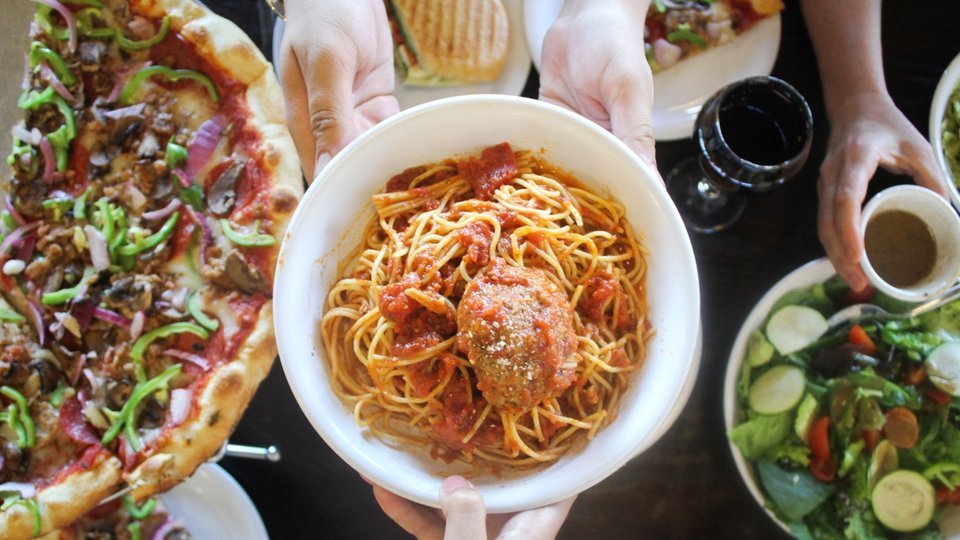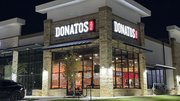Operations
Mici Italian has big plans for 2022
Mici Italian has seven units in the Denver area. The company is poised for growth and has plans to double its size in 2022.

February 14, 2022 by Mandy Wolf Detwiler — Editor, Networld Media Group
Mici Italian turns 18 this year, and the fast casual family-owned and operated concept is growing. Based on old world recipes crafted by their father, Jeff, Michael and Kim Miceli founded the restaurant in 2004. Today, Mici Italian has seven locations in Colorado with plans to double its size by the end of 2022.
"What I think is really unique about Mici is that it's not an overnight sensation," Matt Staton, Mici Italian's chief growth officer, said in a phone interview. "It's not built by some kind of corporate formula. … It's really a labor of love over two decades, but the brand has been in constant evolution. We stay true to our food, the original recipes, and that's really what makes Mici what it is."
The company has an AUV of around $1.2 million, and pizza can comprise up to 70% of sales depending on location. It's a New York-style pizza, but the focused menu also includes pastas and salads.
"As customers want really good food but really value speed and convenience," Stanton said. "Mici has evolved to really embrace both those aspects."
Stanton credits Jeff Miceli for perfecting the company's fast casual operations. The restaurants can go from order to table in about 10 minutes, and order to home for delivery in 30 minutes.
"Unlike a lot of players out there in the pizza space, we're able to really deliver that fast casual experience in New York-style pizza, which is pretty rare. … Mici has kind of merged those where we can deliver a really, really good product fast to the customer while retaining that quality of the mom-and-pop restaurants," Stanton said.
New York-style pizza also travels well, which affords Mici Italian a good off-premise business. Stanton said the company thrives on dine-in, but also excels at pick-up and delivery.
Mici Italian has its own delivery driver staff, which it had pre-pandemic, and the business succeeded during COVID-19 as it was able to deliver to hungry diners unable to eat in the restaurants.
"For a decade or more, that's been a big part of the brand," Stanton said. "The reason for that is we've dabbled with (third-party delivery services) … but with most of them we utilize our own delivery drivers. So we may deliver a GrubHub order … but we do that because we want our customers to have a really good, quality pizza."
Stanton said the brand has had third-party delivery drivers pick up orders without hot bags to deliver the food, which significantly changes the outcome. It won't be a good product if it sits on a car seat for 15 minutes, he said, and Mici Italian takes its quality seriously.
"A big part of our push in using our own delivery drivers is we can ensure speed of service, we can ensure everything is being delivered in a quality way and what's staying hot is staying hot and what's staying cool is staying cool," Stanton added.
The company's primary core customer, said Stanton, are young and middle-aged families and retirees who appreciate the quality of food. Beer and wine are available, but the company is not a bar concept.
"We have a gelato counter, not a bar," Stanton added. "When kids come in, it's probably their favorite part."
On the menu
Pizza remains the top focus at Mici Italian, though pastas and salads remain popular sides. The brand started with sauce and dough being made in-house, and dough is still made on-site with a 48-hour ferment through a rigorous process. Sauces are now formulated at a commissary using the original recipes. "It helps ensure consistency between locations and it helps with our scaling efforts," Stanton said.
Cheese is shredded and vegetables and meats are cut in-house, and the company doesn't want long cook processes that are labor intensive in to focus on the customer and make great food. Items are chopped and processed during slow periods with one or two people, and that helps keep labor costs down even though they're able to do much in the restaurants.
"We build our operations around doing prep in the shoulder times. We have to have staff in the restaurant during those times anyway," Stanton said. "You kind of get those stations prepped and when its go time for revenue, it's all about making the food.
"That allows us to not have a lot of stress in our restaurants. A big part of labor costs is having big turnover in your restaurants. We can run very high revenue hours and it doesn't feel stressful in our restaurants. … in addition, we really prize that family culture."
Expansion plans
In the first half of 2022, Mici Italian plans to expand in Phoenix, Dallas and Michigan in the greater Detroit area.
"Mici has been very diligent in laying a strong foundation to grow on," Stanton said, adding that some brands figure out growth as they're expanding but Mici Italian has purposefully calculated its growth to be slow as it builds its systems.
"For a small brand, we're steps ahead of brands much larger than us," Stanton said, because the company didn't want to grow until those steps were in place.
Mici Italian plans to expand outside of Colorado via franchising but remain corporate-owned in the state. Stanton expects the company to double itself in 2022 if not expand further.
"We have all the brand fundamentals down. Now it's just time to scale the brand," Stanton said.
The brand's CEO, Elliot Schiffer, who has an extensive background in restaurants, came aboard four years ago, and Stanton said it would have been easy for him to hit the ground running with quick expansion plans. Instead, he wanted to build a strong foundation upon which the company could grow.
They wanted to make sure the formula was replicable at the corporate level for franchisees to succeed before hitting the gas on growth. The current franchisees are all experienced restaurateurs. The brand is looking for franchisees with experience and the ability to own a market or a substantial part of a market.
"I think we've all seen so many brands that grow up to a certain point and kind of fizzle out. They plateau," Stanton said. "Things aren't in place. There's a lot of things they haven't figured out and we didn't want that to be the Mici story. We wanted our franchisees to have as big of a shot to be successful as possible. … We kind of run our corporate structure like our restaurants run — it can be busy. There's a lot going on, but it's smooth. It's controlled. Just one foot in front of another because the systems and the processes are worked out."
About Mandy Wolf Detwiler
Mandy Wolf Detwiler is the managing editor at Networld Media Group and the site editor for PizzaMarketplace.com and QSRweb.com. She has more than 20 years’ experience covering food, people and places.
An award-winning print journalist, Mandy brings more than 20 years’ experience to Networld Media Group. She has spent nearly two decades covering the pizza industry, from independent pizzerias to multi-unit chains and every size business in between. Mandy has been featured on the Food Network and has won numerous awards for her coverage of the restaurant industry. She has an insatiable appetite for learning, and can tell you where to find the best slices in the country after spending 15 years traveling and eating pizza for a living.
 ChatGPT
ChatGPT Grok
Grok Perplexity
Perplexity Claude
Claude








